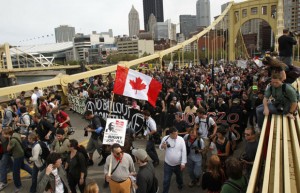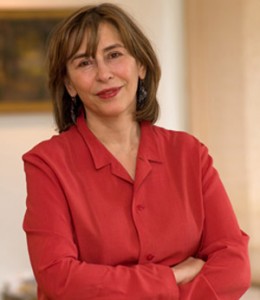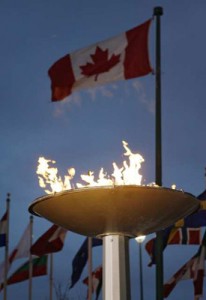Downtown to become a fortress for G20 summit
In four months, Steve Bovair’s downtown neighbourhood will be transformed from cosmopolitan high life to a barricaded no-man’s land.
On a normal day, the network engineer can look outside his 17th-floor window to find a typical urban scene. Cars drift through his intersection at Lower Simcoe St. and Bremner Blvd. Customers dash into take-out restaurants and convenience stores at the base of his building. Construction workers pound away at the beginnings of a new condo tower across the road.
But on June 26, the scene outside his window will resemble an urban combat zone: razor-wire fences lining the streets, helicopters clattering overhead and potentially, at least throngs of screaming protestors confronting police officers in riot gear. Bovair lives kitty-corner from the Metro Toronto Convention Centre, picked as the site for the upcoming G20 summit, and for two days in June, a swirling mob of foreign delegates, journalists, security personnel and potentially, at least stick-wielding protestors will take over downtown Toronto, literally landing on his doorstep.
Needless to say, Bovair won’t be sticking around.
“We’ve actually made the decision to go away that weekend,” said Bovair, who plans to escape with his wife to their summer home near Collingwood. “The easiest thing is to go away … and then come back when all the commotion’s over.”
Protests and fears of terrorism have become part and parcel of high-profile international meetings like the G20 summit, and Ottawa is funding an RCMP-led task force called the Integrated Security Unit to oversee security for the G20 and the G8 summit, which will take place in Huntsville. Collectively, the two meetings have been pegged the biggest security event to occur on Canadian soil.
“With the G8 and G20 held on the same weekend; it’s never happened before anywhere globally,” said Michele Paradis, RCMP spokesperson for the ISU, which also includes the Canadian Forces and officers from Toronto, Peel and the OPP.
Security officials have assured Torontonians the convention centre will create a smaller “security footprint” than bigger and more isolated venues like Exhibition Place, which was floated as a possible location. But even though the ISU says it will strive to maintain a “business as usual” atmosphere for downtown Torontonians, barricades are likely to be necessary and several security zones will be established around the downtown core.
Security perimeters are still being mapped out, but the Waterfront Business Improvement Area says police have told them zones could stretch as far north as Queen St. and as far east and west as Yonge St. and Spadina Ave.
Councillor Adam Vaughan, whose ward contains the G20 site, says he wouldn’t be surprised to see the security blanket reach as far south as the Gardiner Expressway.
“The space between Bremner (Blvd.) and the Gardiner … my sense is they’ll be securing all of that,” Vaughan said, adding he anticipates the club district will also face restrictions during the G20 summit.
Security officials promise to communicate details as soon as possible, but many residents and business owners are anxious for information.
“We would like to know as soon as possible so we can make plans,” said Elizabeth, owner of Chunky Fries, a food truck that parks in front of the convention centre. She declined to give her last name.
“We don’t really know (anything) yet. The city hasn’t notified us,” she said. “I anticipate we’ll be asked to move for security reasons.”
But when Pittsburgh hosted the G20 last year, the U.S. Secret Service didn’t announce its security boundaries until two weeks prior to the summit. Two visible security perimeters were ultimately constructed around Pittsburgh’s conference site, which is in the city’s central business district and backs onto the Allegheny River.
In Pittsburgh, the immediate area around the conference site was transformed into a pedestrian-only zone, accessible via two checkpoints, and an outer zone was blocked off to cars. Residents living within the perimeter had to undergo background checks, show ID and pass through metal detectors.
The blocked-off perimeter ultimately spanned an area measuring just over three-quarters of a kilometre by one-quarter of a kilometre; extrapolating to Toronto, this could mean a boundary area that stretches from Spadina Ave. to York St., and from the Gardiner Expressway to Wellington or King Sts.
But in Toronto, G20 organizers will also have to contend with a much more dynamic and complex neighbourhood than Pittsburgh. Complications seemingly loom in every direction:
• To the west is the Rogers Centre, which may fill with more than 40,000 fans if former Blue Jay Roy Halladay comes back to Toronto to pitch against his old team for the first time. Paradis says it’s up to the team whether they will reschedule; Blue Jays spokesperson Mal Romanin says he still has to confer with G20 officials but for now, the game is “full steam ahead.”
• To the east is Union Station, that frenetic transportation hub that funnels thousands of travelers every day to their TTC, GO Transit and VIA Rail destinations. The ISU isn’t planning to shut down the station or cancel routes at this point.
• Overhead, planes fly to and from the island airport. The ISU says they have no plans yet to shut down the airport, although Toronto Port Authority officials say general aviation will probably be “severely restricted.”
• Underneath lies one branch of the PATH system, a web of interconnected corridors that links more than 50 buildings and office towers. The ISU says the PATH probably will face “restrictions.”
And just south of the convention centre are the former railway lands, now one of the fastest-growing residential areas in the city. In Pittsburgh, the ward that included the conference site had only about 2,700 residents during the last census, in 2000; in Toronto, the railway lands alone contain some 8,000 residential units, according to Vaughan.
“The federal government appears to have paid absolutely no concern to the concerns of the community,” said area resident Mike Brock, who lives a few blocks from the convention centre. “I have a 14-month-old daughter. You worry about having to leave and go through crowds and tear gas being thrown. … It just seems like it was a very poorly thought-out location.”
Business owner Rosa De Silva fears her clients won’t be able to access her hair salon at Wellington and John Sts. if she falls within the security perimeter. And if she finds herself at the edge of the barricades, she worries her storefront could become collateral damage in the crossfire of police and protesters.
“If that kind of thing happens, who’s going to pay?” she asks. “The government has to help.”
For business owners in Pittsburgh, violence wasn’t a problem, but many shuttered for the G20 summit. The ones that stayed open saw their bottom line take a giant hit.
“It was extremely painful,” recalls Pittsburgh restaurateur Robin Fernandez, who owns a tapas restaurant that fell within the security perimeter. He said Pittsburgh became a “ghost town” during last year’s G20 summit and his restaurant, Bossa Nova, lost between $30,000 and $40,000 in revenue.
“It was very costly for us, to the point where we’re still trying to recover,” he said. “I really do not know what benefits we will ever reap from hosting that event.”
In Toronto, members of the Waterfront BIA wish they had been consulted when the federal government chose their neighbourhood to host the summit. The BIA has committed hundreds of thousands of dollars to hosting the Redpath Toronto Waterfront Festival on June 30, bringing in 12 tall ships from around the world to dock on the central waterfront.
But with the G20 wrapping up just three days prior, a slew of unanticipated problems has cropped up: What if everyone skips town to avoid the summit? Will the RCMP dismantle the barricades in time? Where will ship captains and crew sleep, now that all the hotels are reserved for G20 delegates?
To make matters worse, the festival is now in direct competition with the Pride Parade, which was pushed back a week to accommodate the G20.
“We could have held our event in the fall,” says a frustrated Carol Jolly, executive director of the BIA. She was reassured June would be the best time for the festival, but “now we’ve got all these things that are kind of pushed on us.”
Resident Mike Brock feels Ottawa made a huge mistake in plunking such a disruptive and inflammatory event in his community’s backyard.
“Everyone knows that these conferences create very, very large protests,” he said. “All it takes is 10 or 20 very violent protestors to turn the area into a war zone.”
Take our FREE Online Assessment Today!
Socialize with Abrams & Krochak
Proof of Language Ability and Improved Processing Times

Citizenship and Immigration Canada has announced that, effective April 10, 2010, visa officers will only consider the evidence of language proficiency provided at the time of application.
It used to be that applicants in the Federal Skilled Worker Class and Canadian Experience Class could file any kind of documentary proof to substantiate their language abilities in English and/or French. If a visa officer was not satisfied that the documentary proof substantiated the level of language abilities claimed, the visa officer would offer the applicant the opportunity to undergo and submit the results of a designated language test. As of April 10, 2010, however, that “offer” will no longer be an option.
While the downside to this policy change is that (i) applicants cannot buy themselves time to improve their language abilities and (ii) applicants must bear the cost and inconvenience of formal language testing, the upside to this policy change is that processing times will be improved as an intermediate step will be removed from the application process.
Take our FREE Online Assessment Today!
Socialize with Abrams & Krochak
Luminato literary program focuses on Africa, Iran
Toronto arts festival Luminato will focus on Africa in its literary program this year, bringing influential African writers, including Kenya’s Ngugi wa Thiong’o.
Ngugi, who was exiled from his native land in 1977, has advocated for Africans writing in native languages and suggested rejecting European styles of writing in favour of a fresh approach.
In a discussion moderated by Toronto poet laureate Dionne Brand, Ngugi will discuss his ideas of cultural identity with Nigerian-Canadian author Carole Enahoro, Zimbabwe’s Brian Chikwava and Kenyan playwright Binyavanga Wainaina.
Wainaina’s play Shine Your Eye is included in The Africa Trilogy theatre event also planned for this year’s Luminato, announced on Monday.
The literary lineup announced Tuesday also turns to the issue of personal freedom in Iran, which will be explored on stage in a new play by Toronto playwright Erika Batdorf, One Pure Longing.
Azar Nafisi, author of Reading Lolita in Tehran, about a circle of female students she tutored during a period when Iran imposed extreme restrictions on women’s freedoms, will be in Toronto talking about the current political climate in Iran.
The program also includes separate readings by literary stars Ben Okri, author of The Famished Road, and Roddy Doyle, author of A Star Called Henry and The Woman Who Walked Into Doors.
Other Luminato literary programs:
- Fiction in the Age of E-Books, a panel moderated by Atlantic deputy editor Scott Stossel.
- Readings by Canadian-born New Zealander Eleanor Catton, author of The Rehearsal, and Saskatchewan-born author Michael Helm, author of Cities of Refuge.
- Scene of the Crime, featuring readings by South African murder mystery author Deon Meyer and John Brady, author of A Long Hard Look.
- East/West in Canadian Fiction, with Canadian authors Anosh Irani, Lorna Crozier, Lynn Coady and Michael Winter discussing how regional differences shape creative writing.
The festival runs June 11-20 in Toronto.
Take our FREE Online Assessment Today!
Socialize with Abrams & Krochak
Seven people who told officials they entered Canada as spectators to the Vancouver Winter Olympics are seeking refugee status in Canada.
Citizenship and Immigration Canada says six of those people come from countries that don’t require special visas to enter the country.
Owing to privacy law, a spokeswoman says she can’t divulge further identifying information about the claimants, including where they’re from.
It’s not unusual for people attending international sporting events in Canada to make claims, though summer sports usually produce more.
A man believed to be a Romanian coach claimed refugee status during the 1988 Calgary Games, and Olympian wrestler Daniel Igali claimed asylum here after competing at the 1994 Commonwealth Games in Victoria.
Immigration spokeswoman Johanne Nadeau said claims could still rise, because the period of time that people who attended the Games are legally allowed to remain here isn’t over.
Take our FREE Online Assessment Today!
Socialize with Abrams & Krochak
Archives
- January 2024
- November 2023
- July 2023
- June 2023
- May 2023
- January 2023
- November 2022
- April 2022
- March 2022
- February 2022
- October 2021
- June 2021
- April 2021
- October 2020
- September 2020
- June 2020
- May 2020
- April 2020
- March 2020
- December 2019
- January 2019
- December 2018
- November 2018
- August 2018
- June 2018
- April 2018
- January 2018
- December 2017
- November 2017
- April 2017
- January 2017
- December 2016
- November 2016
- October 2016
- September 2016
- August 2016
- August 2015
- January 2015
- December 2014
- November 2014
- June 2014
- April 2014
- March 2014
- February 2014
- December 2013
- May 2013
- April 2013
- January 2013
- December 2012
- August 2012
- June 2012
- March 2012
- January 2012
- September 2011
- August 2011
- July 2011
- June 2011
- February 2011
- January 2011
- December 2010
- November 2010
- September 2010
- August 2010
- July 2010
- June 2010
- May 2010
- April 2010
- March 2010
- February 2010
- January 2010
- December 2009
- November 2009
- October 2009
- September 2009
- August 2009
- August 2008
- July 2008
- June 2008
- May 2008
- April 2008
- March 2008
- February 2008
- January 2008



